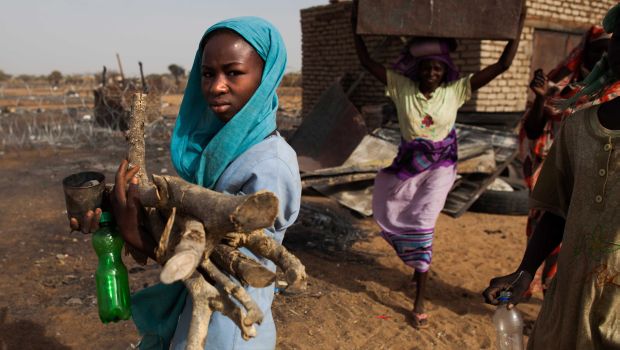Has the Sudanese government been successful over the past 25 years? My answer, without the slightest hesitation, is: No. I think that the vast majority of the Sudanese people share my sentiments.
In 1989, an Islamist movement seized power in Sudan through a military coup led by Omar Al-Bashir, who overthrew the democratically elected government and created a new government based on their ideology. Their slogans were: “No loyalty but to God,” “There is no alternative to God’s law,” “Jihad in South Sudan,” “America, Russia—their decline is approaching,” and so on. The coup was a clear demonstration of the reality of the country’s crisis, connected to that crisis through the insurrectionists’ platform, which sought to address it. The result was that those behind the coup took over not only the ruling party, but the entire state. Sudan has been independent for more than 58 years, but somehow it is still under the rule of Bashir and his party. The crisis has now reached its peak and Sudan finds itself in real trouble. The country’s predicament has several features.
Bashir had seized control of a unified country, but his government’s policies caused the secession of the South. They also resulted in Sudan’s transformation into a military state.
The country’s civil war destroyed everything in Darfur, Kordofan, and the Blue Nile state. The war claimed the lives of thousands of the nation’s youth, and traumatized and scarred thousands more—both physically and mentally. It increased the number of internally displaced persons and refugees; thousands of Sudanese are now looking for a safe haven for their children in Europe, Australia and America.
The rule of tyranny and terrorism, as well as the violation of human rights in Sudan, has reached an unprecedented degree in our country. Global and regional organizations, in addition to local communities, can testify to this. ‘Ghost houses,’ where deliberate and systematic torture takes place under the direct orders of the political leadership have spread throughout the country—the orders are not carried out by junior officers and soldiers only.
After the secession of South Sudan, the civil service has deteriorated, causing the displacement of thousands of qualified workers, staff and professionals, denying them the right to work. Instead, supporters of the regime have replaced these workers, without any care for their skills or knowledge. The result is a monumental ‘brain drain,’ as well as a drain on the skills and the labor of the people. There is complete loss of confidence in a single national civil service, which includes the legal system.
Thousands of officers and soldiers of the Sudanese military establishment have been discharged, and the heritage and longstanding traditions of this institution have been eradicated. This heritage was based on the patriotism of the Sudanese officers and soldiers, and their regard for—in all the critical moments of modern Sudanese history—the people, and the freedom, of Sudan, as well its progress and territorial integrity.
The total collapse in the Sudanese economy and the termination of major projects has been a main focus of development projects. At the same time, the rise of new types of parasites, war profiteers, brokers of famine, and looters of public money, are the fruits of the very same system. The result is a shortage in the basic necessities of life: the collapse of essential services such as healthcare, education, and water treatment— in addition to the outbreak of famine which has caused people to beg for food. The middle class has collapsed, while rampant corruption in the country has risen to an unprecedented degree. There is a lack of security and safety, and many children are displaced, causing the destruction of families and the disintegration of the social fabric.
The deterioration of Sudan’s foreign relations has reached a lamentable degree as the country enters into ill-advised alliances. This has transformed the nation into a shelter and a haven for fundamentalist terrorism. But the state then spins 180 degrees, opening the country to foreign intelligence agencies to combat terrorism. With all this, the concept of Sudanese national sovereignty has become utterly meaningless.
A backwards social project under the slogans of “Reconstructing Society” and “The Civilizational Project” has been imposed. The project reflects the narrow-minded goal of demonizing people the government disapproves of, and its desire to impose the notion of the superiority of a certain religion and ethnicity. It forcibly imposes the visions of one party throughout the country, and the result is rampant prejudice, blind racial intolerance, the promotion of a culture of murder and brutality, and the forced recruitment of students and youth for the purpose of using them as human shields in the civil war. There is an amazingly backward attitude towards women, while superstition and the widespread belief in legends are reinforced. There are attempts to eradicate the country’s cultural and artistic heritage, including Sudanese art and singing. The country has witnessed, for the first time in its history, plundering and alienation. Cities are becoming ruralized, and civil society institutions are falling apart with no confidence left among the public regarding their efficacy. These institutions include political parties, and therefore citizens are retreating into the protection of their tribes and clans in search of safety and security. This could cause serious problems for the country.
For these reasons, among many others, Bashir and his regime have been able to stay in power for 25 years and have led the country to the edge of collapse, creating what can only be described as a failed state.
The counterpoint to this article can be read here.
